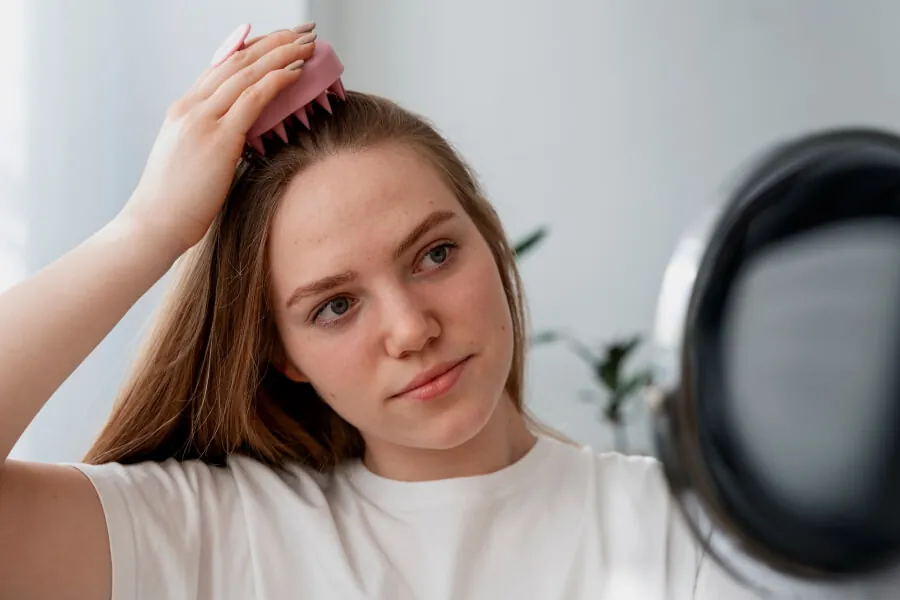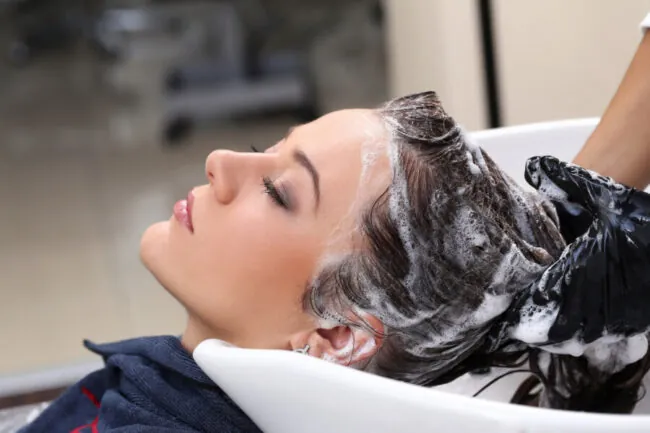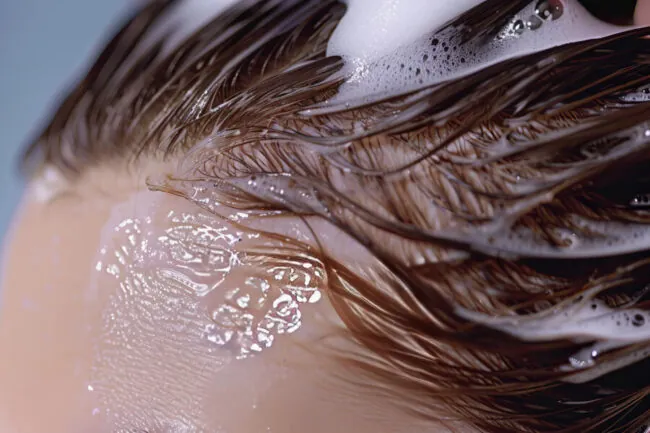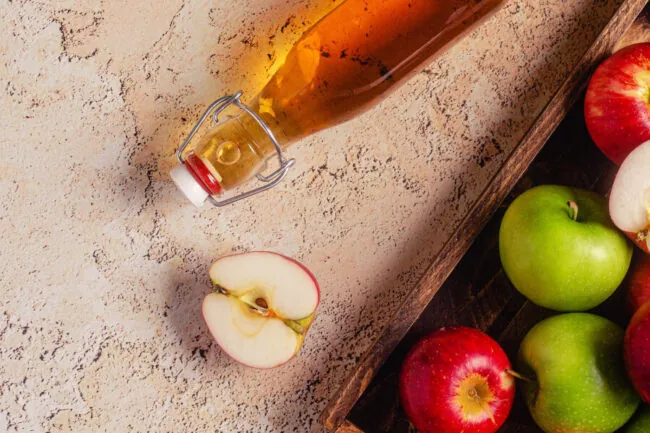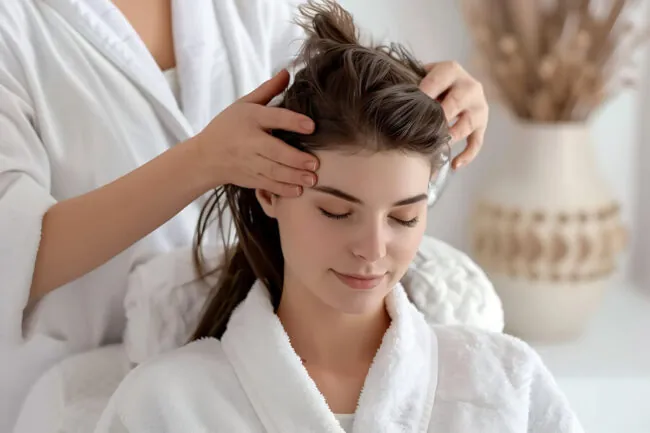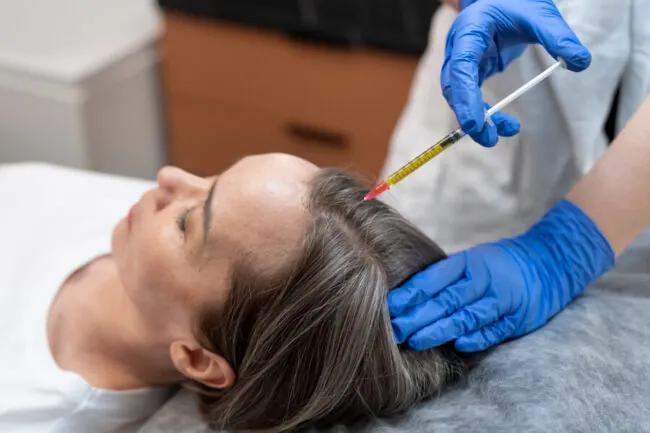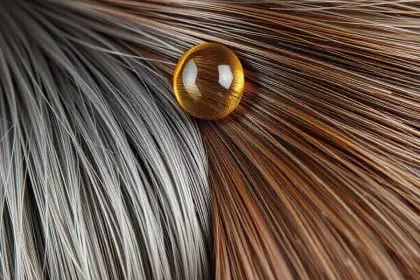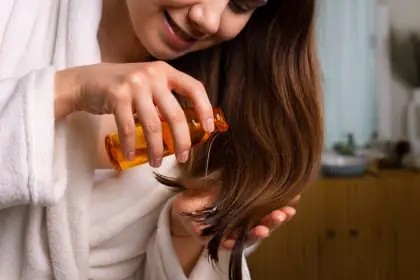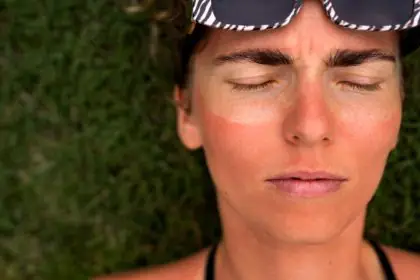Having an unhealthy scalp, either dandruffs or scalp issues needs good habits to be done. Discover how to improve your scalp health with only natural things to do! Ready?
The Importance of Scalp Health
Before diving into the things to do, know that your scalp is more than just the skin under your hair; it plays a vital role in hair growth and overall hair health.
A healthy scalp provides the right environment for hair follicles to thrive, ensuring your hair grows strong and healthy.
On the contrary, a neglected scalp can lead to dryness, flakiness, and even hair loss.
Understanding the importance of scalp health is the first step toward achieving healthier, beautiful hair.
Common Causes of an Unhealthy Scalp
- Overwashing: Stripping the scalp of its natural oils.
- Using Harsh Chemicals: Ingredients in some hair products can irritate the scalp.
- Poor Diet: Lack of essential nutrients can affect scalp health.
- Stress: Can lead to conditions like seborrheic dermatitis.
- Environmental Factors: Pollution and sun exposure can damage the scalp.
Understanding these causes can help you take proactive steps to maintain a healthy scalp.
Healthy Scalp Normal Habits
Proper Hair Washing Techniques
Washing your hair correctly is vital for scalp health. Here’s how to do it:
- Frequency: Avoid washing your hair too frequently; 2-3 times a week is generally sufficient for most people.
- Water Temperature: Use lukewarm water. Hot water can strip the scalp of natural oils, while cold water might not clean effectively.
- Shampoo Application: Focus shampoo on your scalp, not just the hair. Gently massage it into your scalp to cleanse it thoroughly.
Importance of Scalp Hydration
Hydration is as important for your scalp as it is for your skin.
Drink plenty of water and use a hydrating scalp serum if necessary.
Natural oils like: Coconut or jojoba oil can also provide much-needed moisture to your scalp.
Balancing Scalp pH with Natural Remedies
Maintaining a balanced pH is crucial for a healthy scalp. Natural remedies can help:
- Apple Cider Vinegar Rinse: Dilute apple cider vinegar with water and use it as a rinse after shampooing. It helps balance the scalp’s pH and reduces dandruff.
- Aloe Vera: Apply pure aloe vera gel to soothe and hydrate the scalp.
Scalp Massage Techniques for Improved Circulation
Scalp massages boost blood circulation, promoting hair growth and relaxation. Here’s how to do it:
- Use Your Fingertips: Gently massage your scalp in circular motions for about 5-10 minutes.
- Essential Oils: Enhance the massage with a few drops of essential oils like lavender or peppermint, known for their soothing properties.
Avoiding Common Scalp Irritants and Chemicals
Harsh chemicals in hair products can lead to scalp irritation. Look for sulfate-free, paraben-free, and fragrance-free options.
Natural ingredients are generally gentler on the scalp.
Natural Remedies for Healthy Scalp
DIY Scalp Exfoliation with Brown Sugar
Exfoliating your scalp helps remove dead skin cells and product buildup. Here’s a simple DIY recipe:
- Ingredients: 2 tablespoons of brown sugar, 2 tablespoons of your favorite conditioner or coconut oil.
- Method: Mix the ingredients and gently massage into your scalp. Rinse thoroughly.
Essential Oils Blend for Scalp Massage
A blend of essential oils can provide multiple benefits:
- Ingredients: A few drops each of lavender, rosemary, and peppermint oils mixed with a carrier oil like jojoba or coconut oil.
- Method: Massage the blend into your scalp to promote circulation and soothe irritation.
Diet and Nutrition for a Healthy Scalp
Nutrient-Rich Foods for Improved Scalp Health
Your diet significantly impacts your scalp health. Incorporate these foods for a healthier scalp:
- Omega-3 Fatty Acids: Found in fish, flaxseeds, and walnuts, they help reduce inflammation and promote healthy scalp conditions.
- Vitamins A and E: Found in carrots, sweet potatoes, and spinach, they support scalp health and promote hair growth.
- Zinc and Iron: Found in lean meats, beans, and nuts, they are essential for hair growth and scalp health.
Supplements to Support Scalp Health and Hair Growth
If your diet lacks essential nutrients, consider supplements:
- Biotin: Supports hair and scalp health.
- Vitamin D: Important for maintaining healthy hair follicles.
- Omega-3 Supplements: Help reduce inflammation and nourish the scalp.
Foods to Avoid for a Healthier Scalp
Certain foods can negatively affect scalp health:
- Sugar: Can increase inflammation and lead to scalp issues.
- Dairy: Can sometimes trigger scalp conditions like dandruff.
- Processed Foods: Lack essential nutrients needed for scalp health.
How to maintain a healthy scalp?
Importance of Regular Scalp Care Routines
Consistency is key to maintaining a healthy scalp. Incorporate regular care routines like weekly scalp massages, monthly exfoliators, and hydrating treatments as needed.
Hair Styling Tips to Protect the Scalp
How you style your hair can impact your scalp:
- Avoid Tight Hairstyles: They can pull on the scalp and cause damage.
- Heat Protection: Use heat protectants when styling with hot tools to prevent scalp burns and dryness.
- Gentle Brushing: Use a soft-bristle brush to avoid irritating the scalp.
DIY Scalp Treatments for Different Scalp Conditions
Depending on your specific scalp condition, different treatments can be beneficial:
- For Dandruff: Tea tree oil diluted with a carrier oil can help reduce dandruff.
- For Dry Scalp: A honey and olive oil mask can provide deep hydration.
- For Oily Scalp: Lemon juice mixed with water can help balance oil production.
Conclusion
Improving and maintaining scalp health naturally involves a combination of good habits, proper hair care techniques, and a nutrient-rich diet.
By understanding the importance of scalp health and implementing these tips and remedies, you can achieve a healthy scalp and beautiful hair.
Remember, consistency is key, and taking the time to care for your scalp will pay off in the form of stronger, shinier, and healthier hair.
FAQs
Can Scalp Health Affect Hair Growth?
Yes, a healthy scalp is essential for hair growth. A well-nourished scalp provides the right environment for hair follicles to thrive, leading to stronger and healthier hair.
How Often Should I Wash My Hair for Optimal Scalp Health?
Generally, washing your hair 2-3 times a week is sufficient. However, this can vary based on your hair type and scalp condition.
Are There Specific Hair Products to Avoid for a Healthy Scalp?
Avoid products with sulfates, parabens, and artificial fragrances. These ingredients can strip the scalp of natural oils and cause irritation.
Does Stress Impact Scalp Health?
Yes, stress can lead to scalp conditions like seborrheic dermatitis and hair loss. Managing stress through activities like yoga, meditation, and regular exercise can improve scalp health.
When Should I Consult a Professional for Scalp Issues?
If you experience persistent scalp issues like severe dandruff, itching, or hair loss, it’s best to consult a dermatologist or trichologist for a professional evaluation and treatment plan.

